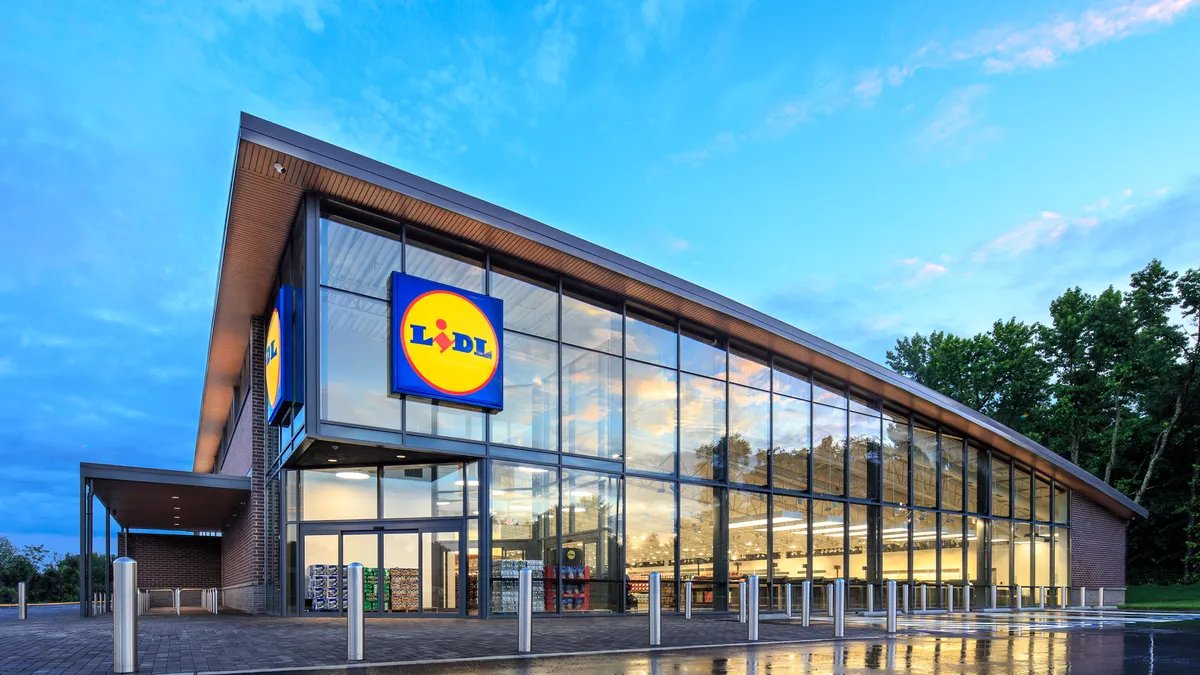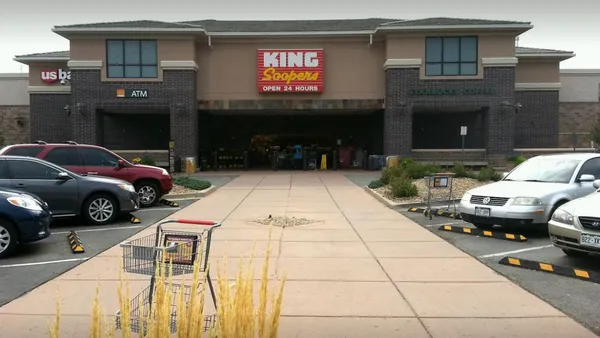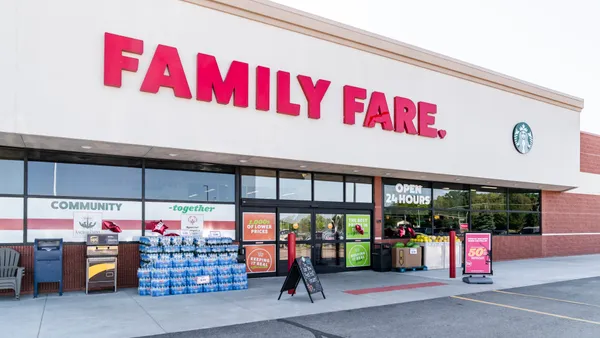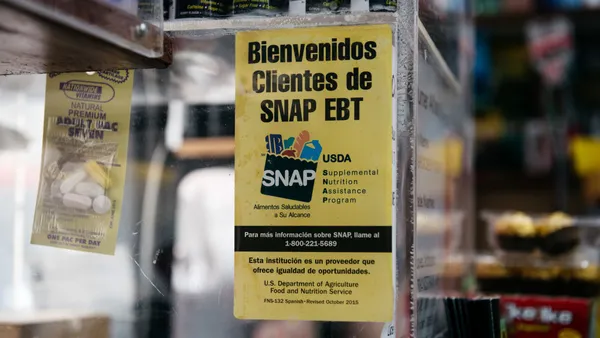Dive Brief:
-
Lidl US has named Roman Heini to the role of chairman, effective March 1. Heini, who will relocate to the company’s U.S. headquarters in Arlington, Virginia, will assume the oversight role from international board member Michael Aranda, who will move on to new responsibilities with Lidl’s European management board.
-
Heini will work with Lidl US’s management team to optimize its store operations and ongoing East Coast expansion. He also will aid with the integration of 27 newly acquired Best Market stores in New York and New Jersey, according to the company.
-
Prior to his hiring by Lidl in October, Heini spent 18 years in various roles with Aldi, including serving as joint managing director for the discounter’s U.K. operations. “Roman’s decision to relocate to our Arlington headquarters with this appointment underscores Lidl’s commitment to the U.S. and is a major step forward in positioning us for dynamic growth,” Johannes Fieber, CEO of Lidl US, said in a statement.
Dive Insight:
Lidl’s decision to relocate Heini to the U.S. indicates an increased focus on corporate discipline and improving results following a weaker-than-expected stateside entry nearly two years ago. Michael Aranda, who was appointed to oversee the U.S. division just three months after its first stores opened — an early sign of the company’s U.S. struggles — formerly oversaw Lidl’s American operations from the company’s headquarters in Neckarsulm, Germany.
In addition to a seasoned veteran, Lidl US gains an executive with deep knowledge of competitor Aldi. Heini’s four-year stint as co-managing director of Aldi U.K. is credited as a key period in the chain’s growth and development. In 2013, the U.K.’s “big four” traditional grocery chains began to lose market share to the company along with Lidl — the beginning of a sales slide as shoppers gravitated toward the smaller boxes and lower prices offered by discounters.
Following his time as managing director, Heini moved into an advisory board role with Aldi Süd before leaving the company in March 2017.
That inside knowledge could help Lidl battle its discount nemesis, which has been building new stores and remodeling legacy ones at a rapid pace. Lidl likely prizes Heini’s overall pedigree in discount retailing, however, as analysts have pointed out that the two discounters are more focused on stealing share from traditional supermarkets.
Lidl has shown a willingness to blend legacy strengths with new tactics in the U.S. Its Best Market acquisition broke with the company’s policy of building its own stores, while promotional changes have been made to better suit American shoppers. The company’s appointment of Fieber last year kept with its policy of quickly swapping out underperforming executives. And its development of smaller locations, the first of which recently opened in Maryland, reflects a shift toward the European store size that has delivered strong results for years.
While Lidl has slowed its organic store growth, its Best Market acquisition, operational changes and the latest executive change point to the chain’s commitment to the U.S. market. The success of alternative formats shows there’s an opportunity to steal share away from conventional grocers — and Lidl desperately want to join that party.













